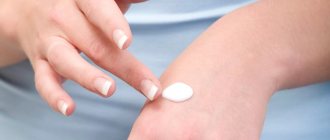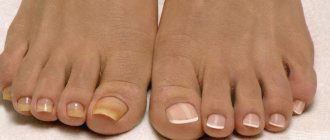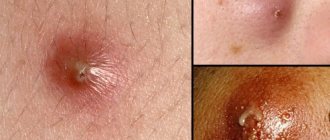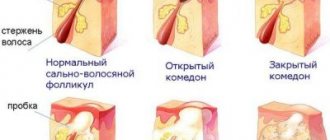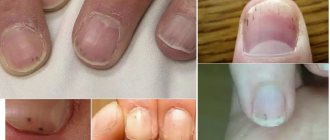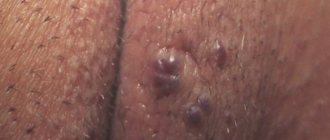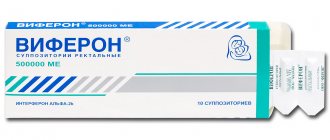Causes of genital psoriasis and risk factors
Scientists from around the world continue to put forward hypotheses regarding the causes of psoriasis, including genital psoriasis. It should be noted that none of the assumptions made has yet been 100% confirmed. However, based on a combination of factors, experts conclude that the main role in the development of this pathology is played by an autoimmune disorder, when one’s own immune cells fight not against foreign agents, but against their own cells.
IMPORTANT! Genital psoriasis is not an infectious or viral disease. This is a dermatological problem caused by autoimmune processes. Therefore, it is impossible to become infected through sexual contact, blood transfusions, or at home.
Possible provoking factors causing genital psoriasis include:
- changes at the hormonal level (the likelihood of exacerbations increases during puberty, pre- and postmenopause, as a result of taking hormonal drugs);
- state of stress, increased nervous or physical stress;
- damage to the mucous membranes or skin in the intimate area;
- decreased immunity due to exacerbation of existing chronic diseases;
- hypothermia or prolonged exposure to damp underwear;
- allergic reactions to food, intoxication due to alcohol or medications;
- change of place of residence, moving to another climate zone;
- overweight.
How is treatment carried out at the Paramita Oriental Medicine Clinic?
But the first step on the path to getting rid of psoriatic plaques is a preliminary appointment with a specialist. At this appointment, the doctor will determine the nature of the disease, its stage of development, the degree of damage to the skin, and the possible causes of this disease in a particular patient.
Based on the data obtained during the survey - and, if necessary, a laboratory examination is also prescribed - the doctor determines the necessary treatment and prescribes a course of complex therapy sessions.
The cost of preliminary admission is 500 rubles.
Diagnosis of genital psoriasis or psoriasis on the genitals
Psoriasis on the labia in women and on the head of the penis in men is not a separate disease. This is just one of the areas where the rash may be located. The problem can be localized in other parts of the body, most often the knees, elbows, abdomen, chest, back, buttocks, scalp, and in this case diagnosis is not difficult. Only genital rashes are rare, but cause more concern due to complex diagnostics, and often such patients are prescribed many tests to exclude infectious and allergic diseases.
Psoriasis of any localization, including genital psoriasis, is characterized by the psoriatic triad:
- The “stearin stain” phenomenon.
- The phenomenon of “terminal film”.
- The phenomenon of "bloody dew".
Fig.1
If the psoriatic triad is doubtful, the doctor may suggest a histological examination.
ethnoscience
In combination with traditional methods, doctors can recommend traditional medicine recipes for the treatment of psoriasis on the penis. What is most often used:
- Herbs (chamomile, St. John's wort, mint, aloe, calendula);
- Ointments based on tar, grease, propolis;
- Soda;
- Iodine.
Before starting therapy, consultation with your doctor is required!
One of the complications of psoriasis on the glans penis is inflammation of the foreskin and phimosis. If the disease is advanced and treatment is ineffective, the man will have to undergo surgery to eliminate the pathology.
Characteristic signs of psoriasis on the genitals
A patient with psoriasis on the genitals complains of suspicious rashes.
Regardless of the location, most psoriatic rashes appear as a cluster of rich pink or red papules, the top of which is covered with white scales.
Genital psoriasis in women is predominantly associated with hormonal changes in the body that occur during puberty, pregnancy and the onset of menopause. A rash with psoriasis in women appears on the skin of the labia majora, in the pubic area, and inguinal folds. Sometimes psoriasis affects the mucous membranes of the labia minora. The disease can be recognized by the characteristic features of the rash: papules usually have a clear oval or circle shape, their boundaries are clearly visible, covered with scales on top, itching is almost always absent. Even though there are lesions in other parts of the body, women usually do not perceive this disease as psoriasis. Representatives of the fairer sex more often identify rashes as a manifestation of gynecological infections.
In men, genital psoriasis primarily affects the penis and head of the penis; the rash can also be located in the folds and pubic area. Usually the rashes are pink or red papules, slightly protruding above the surface of the skin, having smooth borders and covered with scales on top. Peeling and itching are usually absent. In advanced situations, the rash spreads to the inner surface of the skin covering the penis. Such phenomena cause particular discomfort among representatives of the stronger sex.
When a man or woman is diagnosed with genital psoriasis, treatment should not be delayed. Since this area is subject to mechanical friction, the skin in the groin area can become even more traumatized, its surface will begin to crack, which leads to the spread of rashes and damage to an increasingly larger area.
IMPORTANT! Psoriasis on the genitals threatens the normal sexual life of men and women. This, in turn, can trigger neuropsychiatric disorders, which will require more serious correction, so treatment should be started in a timely manner.
Establishing a diagnosis
If primary signs of psoriasis are detected on the penis, you will need to consult a dermatologist. What happens during the initial appointment:
- Examination of parts of the body with manifestations of the disease;
- Survey about the first symptoms, general health, chronic pathologies of the patient and close relatives;
- Issuing referrals for laboratory and other tests.
If inverse psoriasis is suspected, a biopsy of the affected skin is prescribed to rule out other diseases. To confirm this form of pathology, the doctor will carefully examine the folds on the body (axillary, gluteal, groin). It is in these places that inverse psoriasis is localized. To study the structure of formations on the skin, a specialist can perform dermatoscopy.
As an additional examination, an ultrasound of the abdominal cavity and thyroid gland, a cardiogram, and an x-ray are performed to assess the condition of the internal organs. This is necessary to determine the correct treatment method for a patient with penile psoriasis.
To establish the only correct diagnosis, examinations are prescribed to exclude pathologies that have similar symptoms to psoriasis:
- Secondary syphilis;
- Reiter's syndrome (accompanied by simultaneous signs of prostatitis and urethritis, arthrosis and conjunctivitis);
- Eczema caused by germs;
- Skin mycoses;
- Inflammation of the foreskin;
- Cancer;
- Other pathologies accompanied by swelling, redness and peeling of the penis and groin area.
A typical sign of psoriasis is a positive Auschpizza test. When the whitish scales are lightly scraped off, a pinpoint hemorrhage develops.
Treatment of genital psoriasis in men and women
Treatment regimens for genital psoriasis differ from generally accepted methods for eliminating rashes on other parts of the body. The difference is that the genitals have special sensitive areas with mucous membranes; the effect in this area must be especially delicate and careful.
As a rule, for genital psoriasis, complex treatment is prescribed. The optimal therapy should be selected by the doctor, based on medical history, the general condition of the patient, and his individual characteristics. The principles of treatment depend on the degree of the disease and the severity of symptoms.
Typically, a regimen of external therapy for genital psoriasis or psoriasis on the genital organs involves prescribing the following groups of drugs:
- hormonal drugs - such drugs help relieve inflammation and reduce rashes, but they are not recommended for long-term use;
- non-hormonal agents based on activated zinc pyrithione;
- softening and caring components - they help moisturize the skin in the delicate area, eliminate signs of peeling, and restore the natural lipid barrier.
External hormonal preparations should be used with caution, because the surface of the genitals is highly absorbable.
Anatomical differences in absorption (% of the total absorbed dose from the entire
body surface area) are:
- Plantar surface of the foot - 0.14%;
- Palmar surface - 0.83%;
- Forearm - 1.0%;
- Scalp - 3.5%;
- Forehead - 6.0%;
- Lower jaw area - 13%;
- The surface of the genitals is 42%.
The use of external hormones inhibits local immunity, which enhances the growth of fungal flora. After a course of therapy, it is important to gradually reduce the use of hormonal drugs to avoid withdrawal syndrome.
Preparations with the irritating effect of tar and petroleum derivatives are not recommended for use in psoriasis on sensitive areas and genitals, as they have side effects such as severe skin irritation (including burns), persistent discoloration of the skin, increased sensitivity of the skin to the sun (phototoxicity) , frequent cases of allergies. Also, these groups of drugs are characterized by low compliance due to an unpleasant odor.
Many specialists prefer to treat genital psoriasis with non-hormonal Skin-cap cream. Skin-cap cream contains activated zinc pyrithione, which has a pronounced anti-inflammatory property and antipruritic effect. Additionally, the formula of the drugs includes moisturizing components. Skin-cap cream can also be used to prevent progression, for example, to avoid the appearance of psoriasis rashes on the pubis after depilation or shaving.
Advantages of treatment at the Paramita clinic
Do you have bright rashes on your elbows and knees that are very itchy and flaky? Have you tried all the remedies, but the lesions on the skin are only increasing? Alas, you cannot get rid of psoriatic plaques simply with medications; an integrated approach from experienced specialists in oriental medicine is required.
By contacting the Paramita clinic, you will have the opportunity not only to stop the development of the disease, but also to nullify the appearance of psoriatic plaques on your skin.
In addition to treating the underlying disease, the techniques and methods of oriental medicine used will restore your overall immunity, improve metabolic processes in your body and relieve many other problems.
Sign up for a free initial appointment
Additional Relapse Prevention Recommendations
Psoriasis on the genitals cannot be completely cured, but you can take control of this disease and reduce the likelihood of exacerbations. To do this, it is necessary not only to undergo timely medical examinations and follow doctors’ recommendations, but also to reconsider your lifestyle. Here are some recommendations to reduce the likelihood of relapses of genital psoriasis:
- review the diet, exclude foods that cause aggravation;
- provide high-quality and regular skin care in the intimate area;
- exclude traumatic procedures (epilation, shaving, aggressive peelings in the bikini area);
- give preference to linen made from natural soft fabrics (cotton is ideal);
- try to avoid stress, balance activity and rest.
With an integrated approach to prevention and treatment, genital psoriasis can be kept under control, thereby increasing the quality of life of patients.
Fig.1. Psoriatic triad
Rice. 2. Psoriasis on the penis
General recommendations
To avoid frequent exacerbations and prolong periods of remission, a man with psoriasis on the penis is advised to follow a number of recommendations:
- Cleanse your body regularly and avoid constipation;
- Eat a balanced diet, do not overeat;
- Do not injure the penis;
- Avoid hypothermia;
- Treat infectious diseases in a timely manner;
- Monitor your mental state;
- Do not smoke and give up alcohol;
- Maintain a daily routine.
Sometimes doctors advise eliminating foods containing gluten and lactose from the diet for a while. For some patients, such a diet helps relieve symptoms of pathology and reduce the severity of exacerbations.
Types of disease
Simple forms:
- ordinary, or plaque – areas of redness on the skin with clear boundaries and peeling;
- film - most often diagnosed in newborns, localized on the buttocks, difficult to diagnose because it is similar to diaper dermatitis and other skin ailments.
Heavy varieties:
- psoriatic erythroderma - all skin turns red, joint pain, fever, blisters with pus may be observed;
- pustular - blisters filled with non-purulent fluid appear on the skin, causing fever if widespread;
- psoriatic arthritis - redness and blisters on the skin, asymmetric damage to the joints of the arms and legs.
How to treat psoriasis: methods and drugs
To cure psoriasis, it is better to take a comprehensive approach. It is necessary to send the patient for consultation to other specialists: therapist, endocrinologist, gastroenterologist. They will help determine the cause of the malfunction in the body.
Therapy against psoriasis involves:
- use of antiallergic and antihistamine drugs. To eliminate external symptoms, a keratolytic ointment is prescribed, as well as an anti-allergy ointment. To achieve a good result, the patient must take zinc and B vitamins;
- if psoriasis is localized on the scalp, you can use medications in the form of shampoo. For example, Skin-cap shampoo. It contains pure zinc. For some patients, this drug is a salvation. It eliminates external manifestations without the use of hormonal agents. But there are also those for whom such treatment is not suitable;
- Ultraviolet rays are used to combat psoriasis. Treatment is carried out using a PUVA unit. It contains special lamps that emit ultraviolet light.
Therapy is selected individually for each patient. The doctor must be careful in prescribing, since incorrectly selected drugs will only aggravate the course of the disease. Self-medication will not have any effect. It's better to consult a specialist.
Prevention of psoriasis in the groin
Prevention measures can seriously delay relapses and alleviate the patient's condition immediately during an attack of the rash.
The following rules should be followed:
- Monitor your psycho-emotional state. One of the key factors. It is important to limit any stress and anxiety, and also try to always maintain a positive attitude. Negative emotions can provoke an exacerbation of the disease.
- Wear the right clothes. Underwear should not be tight or made of synthetic materials. The latter do not allow the skin to “breathe” and cause increased sweating.
- Control your diet. It is worth excluding or limiting spicy, salty and fried foods, as well as everything fatty, smoked and sweet. It doesn't hurt to remove potential allergens from your diet. These include citrus fruits, chocolate and coffee, nuts, all bee products, and eggs.
- Maintain a healthy lifestyle. It is important not only to give up cigarettes and alcohol, but also to follow the regime. Walking in the fresh air, moderate exercise and a daily routine will be beneficial.
- Rest. People with psoriasis need a moderate work schedule and adequate sleep. A visit to a sanatorium or a simple vacation at sea will also be beneficial. This will strengthen the immune system and improve the condition of the nervous system.
Compliance with the recommendations is the key to a comfortable life and the absence of frequent relapses.

